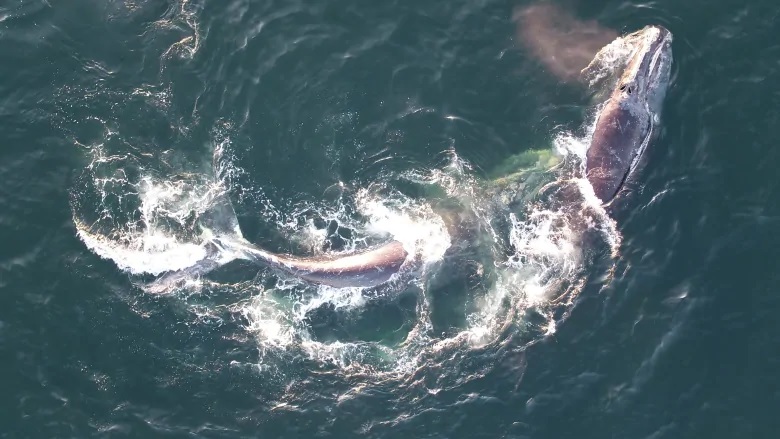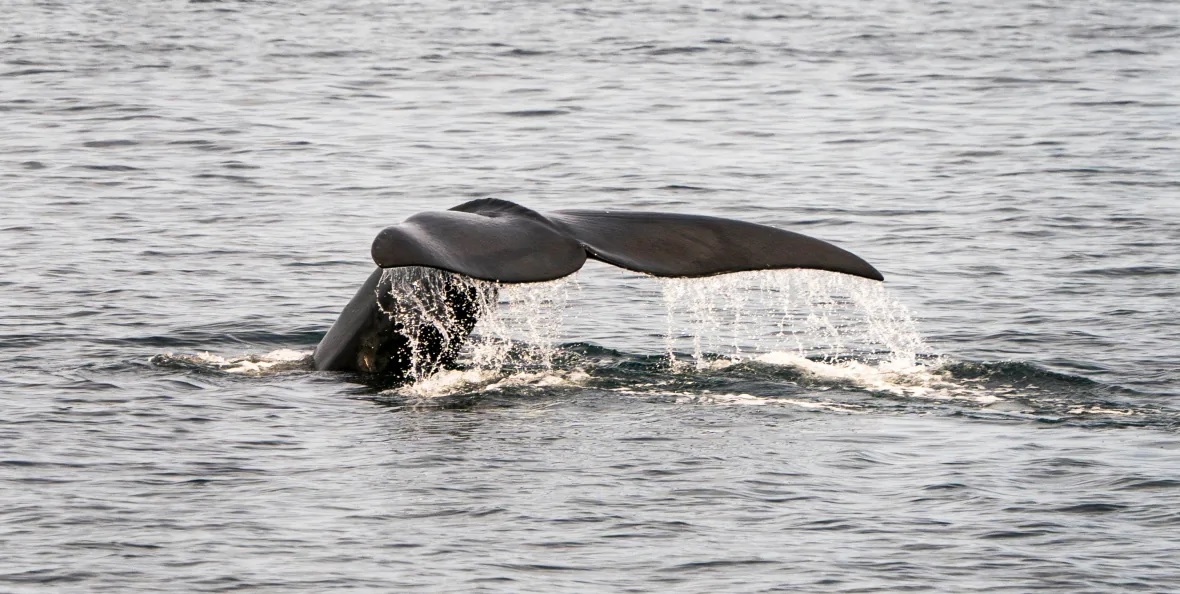The federal government is pledging to continue its efforts to protect North Atlantic right whales off the country’s East Coast–something that paid off in 2020 when no deaths or fishing gear entanglements involving of the critically endangered species were reported in Canadian waters–a giant improvement from the previous five years when 25 deaths were recorded.
Minister of Fisheries and Oceans Bernadette Jordan and Minister of Transport Omar Alghabra made the pledge in a news release published Thursday that announced the 2021 measures in place to protect the whales.
Estimates vary on how many of the whales remain alive–some say 356 while others say 366.

Fisheries and Oceans Canada will continue to close fishing in areas in the Gulf of St. Lawrence, the Bay of Fundy and the Roseway Basin where North Atlantic right whales gather in large numbers. (Department of Fisheries and Oceans)
What is certain is that they face a number of challenges in their fight for survival–including entanglement with fishing gear and collisions with vessels–something the federal government has tried to address with speed restrictions and fishing areas closures.
On Thursday, the government said it will still close fishing areas when whales are present but added that before prolonging such a closure, surveillance would be increased to determine if the whales remained in the area.
When a right whale is detected in an area, it is closed to lobster and crab fishers for 15 days.
Starting this year, a whale would have to be detected again between the ninth and 15th days for that closure to be extended.
In addition to carrying over measures from 2020 the press release said Canada will introduce the following modifications in 2021.
- the mandatory restricted area in and near the Shediac Valley will be refined by size, location, and duration to better protect right whales when they are anticipated to be present in greatest numbers;
- the speed limit exemption in waters of less than 20 fathoms will be expanded to all commercial fishing vessels.
“Last season is proof that by working together, we can effectively protect North Atlantic right whales, while also continuing to put high-quality, sustainable seafood on dinner plates in Canada and around the world,” Jordan said in the press release.

This right whale, seen from the rear, was towed to Cape Breton for a necropsy in June 2019. (CBC/Gary Mansfield)
The government says speed restrictions established in 2019 in the Gulf of St. Lawrence will continue to be enforced, and fines ranging as high as $25,000 for those who don’t comply between April 28 and Nov. 15.
The mandatory speed limit in the western part of the gulf is 10 knots. All speed and closure restrictions apply to vessels longer than 13 metres.
This season, commercial fishing vessels will be exempt from the speed limit in waters of less than 20 fathoms, or roughly 36 metres.
(A study published in December found that current speed restrictions for ships moving through Canadian waters would not prevent the whales from being killed if they are struck. Moreover, the study also determined that smaller vessels–and not just large ones–are capable of creating deadly impacts.)

A North Atlantic right whale swims in the waters of Cape Cod Bay in the U.S. in April, 2019. (AFP via Getty Images)
“Our government remains fully committed to protecting the marine environment while ensuring navigational safety, ” Alghabra said in the press release.
“For the fifth consecutive year, we are implementing vessel traffic management measures for the 2021 season which incorporate evidence-based research and innovative tools to safeguard the North Atlantic right whales,” Alghabra said.
“Working together with vessel operators and the maritime industry, we will continue to support the recovery of this iconic species for generations to come.”
Fisheries and Oceans Canada said it will create a new technical working group that will include harvesters, right whale experts and officials from the department to continue to find ways to upgrade the protection of the whales.
With files from CBC News (Cassidy Chisholm), The Canadian Press (Kevin Bissett)







For reasons beyond our control, and for an undetermined period of time, our comment section is now closed. However, our social networks remain open to your contributions.